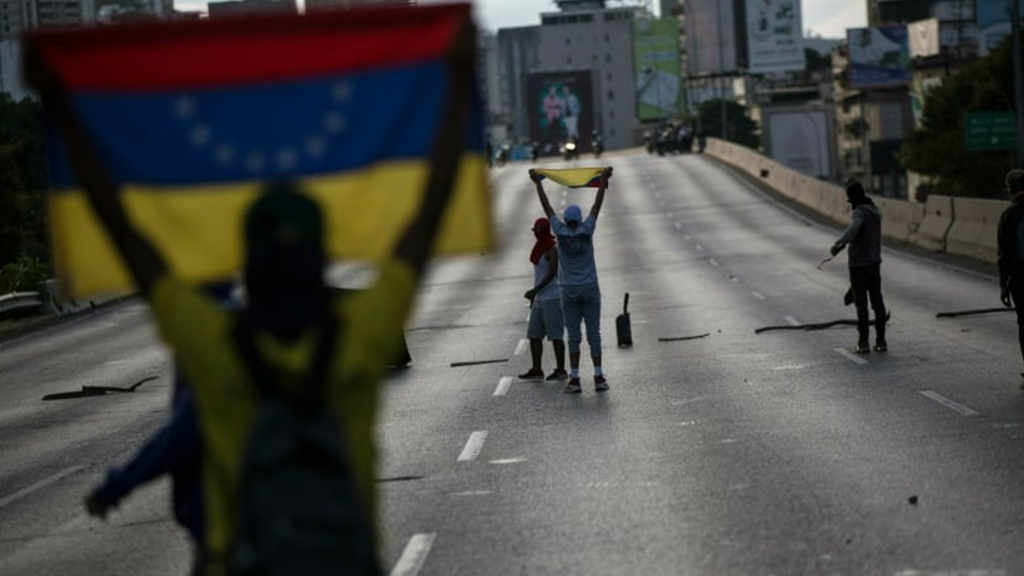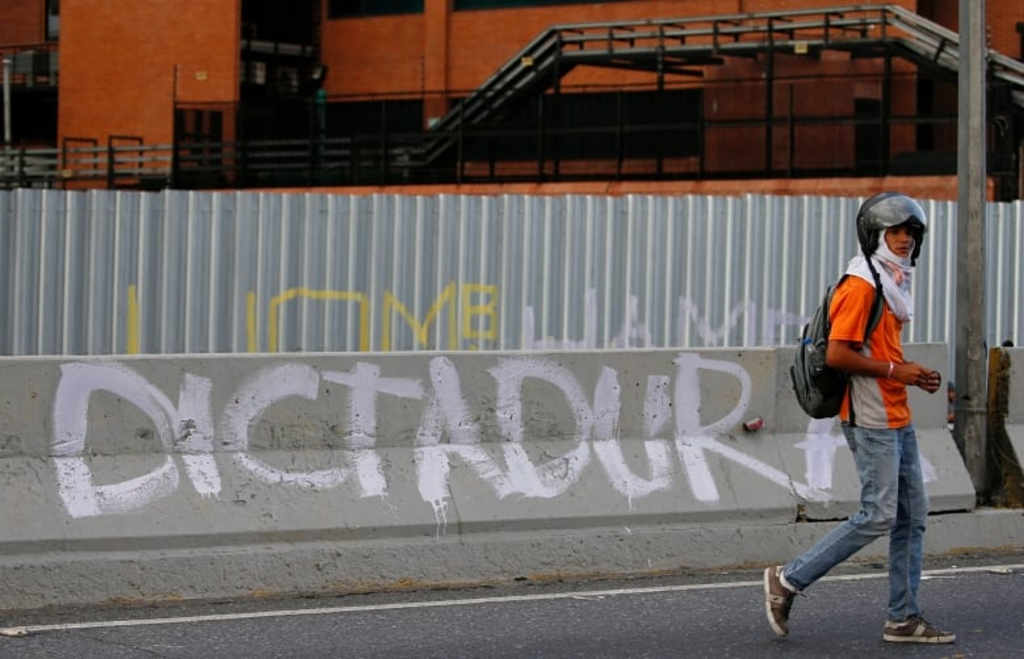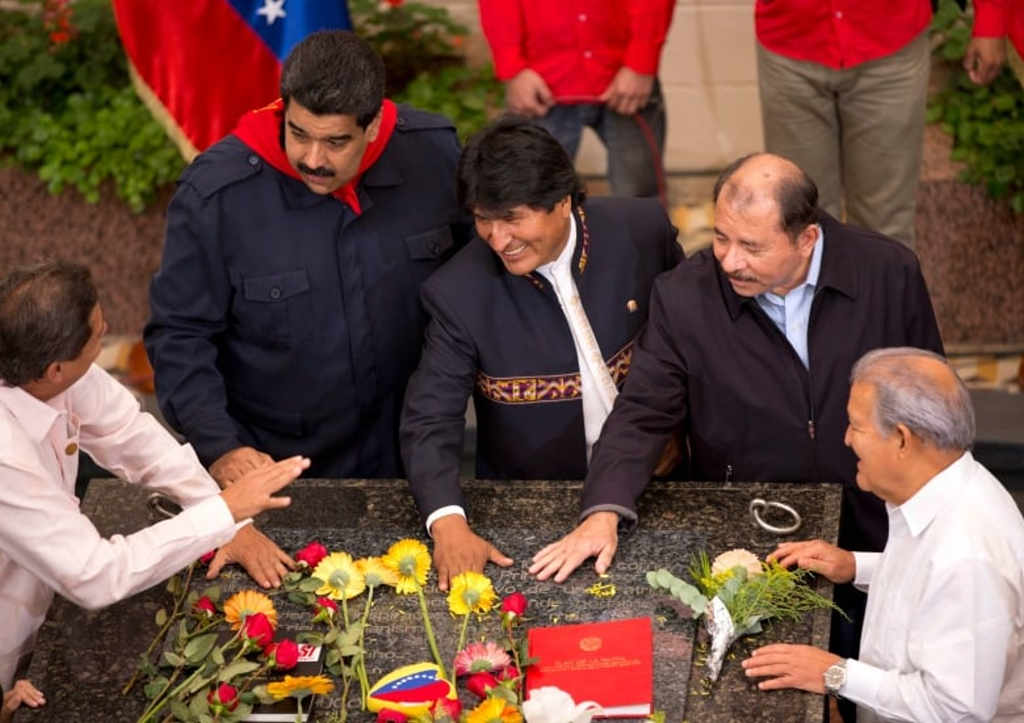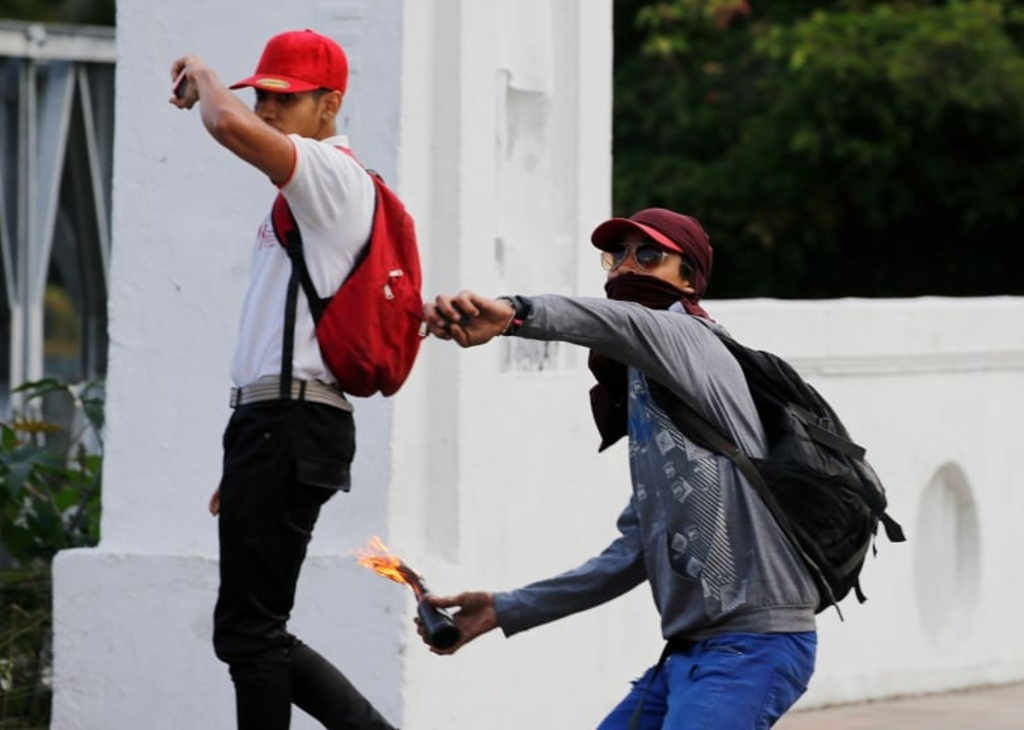As the Lima Group countries ready for an emergency meeting on Venezuela hosted by Canada, here in Venezuela on Sunday, Nicolas Maduro attended the latest in a string of almost daily military exercises.

Each new day in Venezuela brings a new choreographed display of military loyalty to Maduro, and an escalation in the rhetoric of imminent invasion by outside forces led by the United States.
Sunday’s event was staged by naval commandos on the coast of Aragua state, where a group of about a hundred soldiers, crouched on their haunches on the beach at Turiamo on Venezuela’s central coast, chanted the slogan: “Always loyal! Never traitors!”
A naval commando pinned a medal on Maduro’s chest while the two men shouted the slogan together.
Los Comandos del Mar me impusieron la insignia que representa la lealtad y el compromiso de los hombres y mujeres de nuestra @ArmadaFANB, con la Constitución, el Pueblo y la Patria. La recibí con honor, orgullo e identidad; cuenten conmigo. ¡Gracias! pic.twitter.com/ffc7EPEprB
— Nicolás Maduro (@NicolasMaduro) February 3, 2019
“We are in a time of defense of our independence,” Maduro told the marines, pacing in front of them on the beach with a microphone. “To be or not to be, said the great Shakespeare, to be a nation, or to be a colony; to be of Venezuela, or to be nothing; to be a united people and armed forces, or to be disintegration; to be the future and the present, or to be the disappearance of this dream that’s more than 200 years old: Venezuela.”
Nuestros dignos oficiales de la #FANB, en unión Cívico–Militar, son la máxima garantía de la integridad y soberanía territorial. pic.twitter.com/znIBpwtcQ3
— Nicolás Maduro (@NicolasMaduro) February 3, 2019
Is Maduro preparing for war?
No appetite for war
Only one country that has seriously discussed the possibility of using armed force to displace: the United States under the Trump administration, that stands alone in suggesting such an option is on the table.
In Canada, ahead of the meeting of the Lima Group on Thursday, February 7, the CBC news reports Prime Minister Justin Trudeau’s government has consistently opposed the idea of an armed event.

“I think it’s far too premature to have any discussion regarding any type of military actions,” Canada’s Defence Minister Harjit Sajjan reiterated Friday on CBC’s Power and Politics. “We need to allow the diplomatic space and the experts to be able to move forward.”
Neighboring Colombia, the best-placed country geographically to intervene militarily in Venezuela, has also made it clear war is not an option.
“I have never mentioned recourse to war-like methods. That would play into the hands of the dictator (Maduro) who imagines and demonizes the threat of military intervention to wind up patriotic sentiments and cling to power,” said Colombian President Ivan Duque.
Choosing sides
Two rival presidents claiming legitimacy for the leadership of Venezuela has forced a large number of countries to choose a side.
The leftist or left-leaning governments — including Cuba, Nicaragua, Uruguay, and South Africa — support Maduro’s second term.

The right-wing or right-leaning governments — including Brazil, the U.S., and Colombia — see it another way, backing Juan Guaidó.
There is also a split along another axis that has little to do with left or right. Authoritarian governments including Russia and China are backing Maduro.
Canada, Argentina, Costa Rica, France, Germany, democracies that might not otherwise have an ideological stake in the squabble but believe Maduro has illegitimately given himself a second term in office following a widely condemned vote last year, have taken or moved towards Guaidó.

The biggest countries the most committed
The most powerful nations involved have taken positions that leave little room for negotiated solutions.
The U.S. has committed to a regime change and refuses to rule out war. Russia and China have both invested significant resources in the Maduro regime. Much of Venezuela’s most modern military equipment comes from Russia. China has provided technology. Both have provided loans. Big loans.
Who will blink first in such a public struggle?













